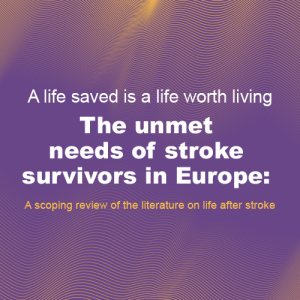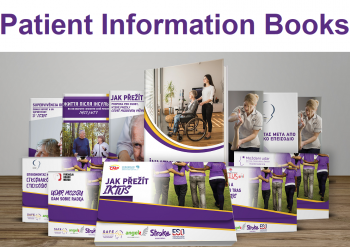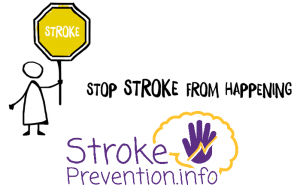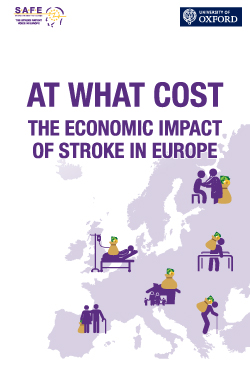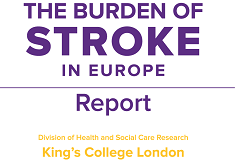
Sep 8, 2017
This September Irish Heart’s ‘Heart Month’ campaign will focus on Stroke Prevention.
Over 2,000 people under 65 have a stroke each year but the good news is that by making small changes to your lifestyle today you can reduce your chances of having a stroke now and in the future.
Make time for a blood pressure check now and find out what you need to do to avoid stroke at www.irishheart.ie (more…)

Sep 8, 2017
Inflammatory hypothesis confirmed: Landmark randomized clinical trial of high-risk patients finds that a drug targeting inflammation reduced risk of major adverse cardiovascular events.
Investigators from Brigham and Women’s Hospital today announced results of a clinical trial culminating from 25 years of cardiovascular research work. At the European Society of Cardiology meeting and in a paper published simultaneously in the New England Journal of Medicine, Paul M. Ridker, MD, director of the Center for Cardiovascular Disease Prevention at BWH, and colleagues presented findings from CANTOS (Canakinumab Anti-inflammatory Thrombosis Outcomes Study), a trial designed to test whether reducing inflammation among people who have had a prior heart attack can reduce risk of another cardiovascular event in the future. The team reports a significant reduction in risk of recurrent heart attacks, strokes and cardiovascular death among participants who received a targeted anti-inflammatory drug that lowered inflammation but had no effects on cholesterol. (more…)

Sep 8, 2017
Poor sleep is associated with ischaemic heart disease and stroke, according to research presented at ESC Congress 2017 in Barcelona, Spain. The observational study in nearly 13,000 people revealed different patterns of sleep disturbance between the two conditions, with ischaemic heart disease being linked to shorter sleep and brief moments of waking up.
“Poor sleep is associated with cardiovascular diseases such as ischaemic heart disease and stroke but the kind of sleep disturbances that are most risky is not well documented,” said lead researcher Dr Nobuo Sasaki, of the Hiroshima Atomic Bomb Casualty Council, Japan. “‘Poor sleep’ includes too short or too long sleep, difficulty falling asleep, and difficulty maintaining sleep.” (more…)

Sep 8, 2017
University of Adelaide researchers have shown that it is possible for stroke patients to improve motor function using special training involving connecting brain signals with a computer.
In a “proof-of-principle” study published in the journal Royal Society Open Science, the researchers described how this brain-computer interface (BCI) produced a 36% improvement in motor function of a stroke-damaged hand. (more…)

Sep 2, 2017
New analysis shows that in a high-risk population, achieving ultra-low LDL cholesterol levels, down to <10 mg/dL, safely results in additional lowering of risk of cardiovascular events.
A newer class of cholesterol lowering drugs known as PCSK9 inhibitors has emerged as an effective treatment for drastically lowering LDL cholesterol beyond current treatment targets. Earlier this year, results from a clinical trial led by investigators at Brigham and Women’s Hospital found that the PCSK9 inhibitor evolocumab, when added to statin therapy, resulted in a significant reduction in the risk for cardiovascular events and was safe. (more…)

Aug 30, 2017
Anticoagulants are recommended for atrial fibrillation due to the high risk of stroke. However, bleeding complications can occur as a side effect. Researchers in Japan examined several types of anticoagulants and found that the rates of thrombus formation are different according to the type of drug. This difference may be related to the risk of side effects, especially intracranial bleeding.
Atrial fibrillation is an arrhythmia signified by rapid and irregular beating of the upper chambers of the heart (atria). Anticoagulant therapy is recommended for atrial fibrillation because thrombi formed by stagnated blood in the atrium can cause stroke. In addition to the conventional anticoagulant warfarin, direct oral anticoagulants (DOACs) have become widely used. DOACs can selectively inhibit coagulation factors, whereas warfarin cannot. (more…)



